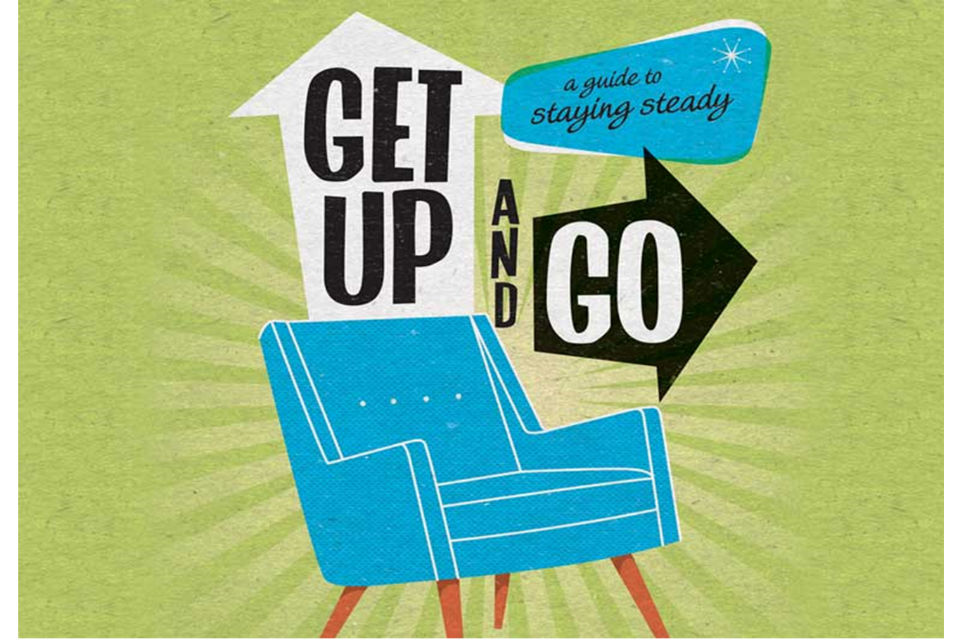An Unbiased View of Dementia Fall Risk
An Unbiased View of Dementia Fall Risk
Blog Article
What Does Dementia Fall Risk Mean?
Table of ContentsHow Dementia Fall Risk can Save You Time, Stress, and Money.Dementia Fall Risk Can Be Fun For AnyoneAll About Dementia Fall RiskSome Of Dementia Fall RiskThe Basic Principles Of Dementia Fall Risk
You might be anxious because you have actually had a fall prior to or because you've seen you're starting to feel unsteady on your feet. You may have discovered adjustments to your health and wellness, or just seem like you're reducing a little. Whatever the reason, it isn't unusual to become cautious and shed confidence, and this can stop you doing the things you used to do and make you really feel extra isolated.If you have actually had a loss or you've begun to feel unstable, tell your medical professional even if you feel great otherwise. Your physician can examine your balance and the way you stroll to see if improvements can be made. They might be able to refer you for a drops risk assessment or to the falls prevention solution.
This information can be acquired via interviews with the individual, their caretakers, and an evaluation of their clinical records. Begin by asking the specific concerning their history of drops, consisting of the regularity and conditions of any kind of current drops. Dementia Fall Risk. Ask about any wheelchair problems they may experience, such as unstable or trouble walking
Conduct a complete evaluation of the individual's drugs, paying particular interest to those recognized to increase the threat of falls, such as sedatives or medicines that reduced blood stress. Establish if they are taking several medications or if there have actually been current adjustments in their medicine regimen. Examine the person's home environment for prospective hazards that might boost the threat of drops, such as inadequate illumination, loosened rugs, or absence of grab bars in the bathroom.
Things about Dementia Fall Risk
Overview the person through the autumn danger evaluation type, explaining each question and taping their feedbacks properly. Make sure that the individual recognizes the function of the assessment and really feels comfy providing straightforward answers. Determine the total risk score based on the actions offered in the analysis type. Determine the individual's threat group (low, medium, or high) based upon the complete score and the existence of automatic risky condition factors.
Routinely keep an eye on the person's progression and reassess their risk of drops as needed. Provide continuous education and learning and support to promote security and lower the risk of drops in their everyday living tasks.
Many studies have actually revealed that physical treatment can aid to decrease the threat of falling in grownups ages 65 and older. In a brand-new research study (that looked at falls threat in women ages 80 and older), scientists computed the economic impact of picking physical therapy to avoid drops, and they discovered that doing Extra resources so saves view $2,144, consisting of all the concealed costs of your time, discomfort, missed out on life occasions, and the dollars spent for services.
Some Known Facts About Dementia Fall Risk.
Checking your heart rate and high blood pressure dimensions at rest and while you change placements (from sitting or existing to standing). A simple test of your thinking (cognitive) capacities. Analyzing your balance, toughness, and strolling ability. A basic vision test. Evaluating your feet and shoes. A home safety and security assessment. Based on the analysis results, your physiotherapist will design a plan that is customized to your details requirements.
Older grownups that have difficulty walking and chatting at the exact same time go to a higher danger of falling. Dementia Fall Risk. To assist increase your safety and security throughout daily activities, your physiotherapist may develop a training program that will challenge you to keep standing and walking while you do another task. Instances include walking or standing while counting in reverse, having a discussion, or bring a bag of groceries
Establish goals for raising their physical activity. Work out much more to boost their strength and equilibrium. These programs often are led by volunteer trainers.
Dementia Fall Risk - Truths

Measles, or rubeola, is an extremely contagious, severe viral infectious disease brought on by the measles virus. Some people think about measles as just a rash and high temperature that cleans up in a few days; nonetheless, measles can create serious wellness difficulties, especially in children more youthful than 5-years-old. The very best security against measles is the measles, mumps, and rubella (MMR) vaccine.
Falls are a typical reason for injury among older grownups. According to the CDC, in one year alone, fall-related injuries added to over $50 billion in medical expenses (Dementia Fall Risk). In hospital setups, older grownups are at especially high danger of drops due to the fact that their minimized flexibility from being confined to an area or bed.
Getting The Dementia Fall Risk To Work

She has a medical history of seizure disorder and high blood pressure. She is getting an IV mixture and taking Gabapentin and Lasix. She has no history of drops, her gait is constant, and she invalidates without any problems. The previous nurse states that she asks for assistance to the restroom when she needs to go.
Instances of typical autumn interventions/measures consist of: Ensuring a patient's crucial items are available. Putting the person's bed rails up with the alarm on. Aiding a person while they're obtaining up from bed. Beyond comprehending exactly how to make use of the Johns Hopkins Fall Danger Analysis Tool, it is essential that facilities integrate its usage into a much more comprehensive loss prevention plan.
Report this page